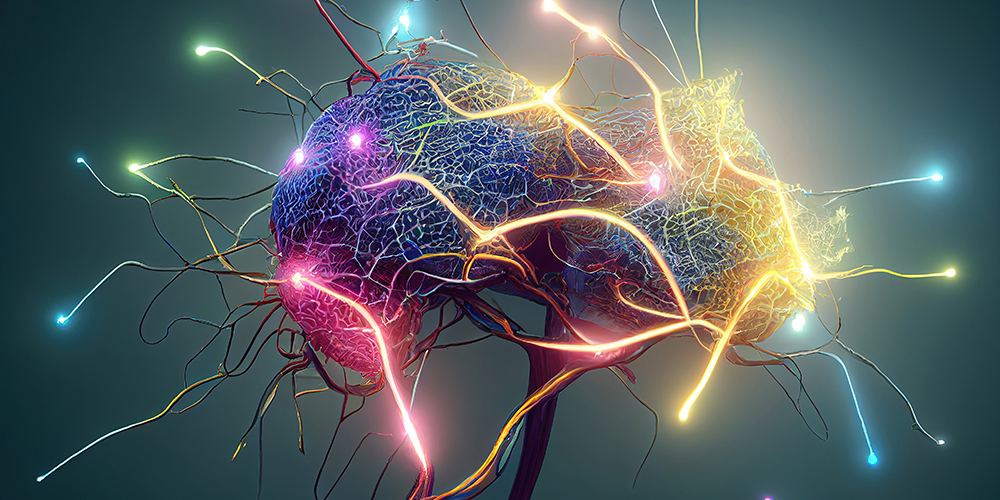- Elon Musk’s Neuralink successfully implanted its first brain chip in a human patient, aiming to enable telepathic communication and treat neurological disorders, though the technology’s long-term implications remain uncertain.
- Brain stimulation experiments date back decades, with researchers using electrodes to induce pleasure, control behavior and manage pain, raising significant ethical concerns about human intervention in biology.
- Neuralink’s first patient, a quadriplegic, initially controlled a computer cursor with his thoughts, but the device’s effectiveness declined after a month due to thread retraction, prompting plans for deeper implantation in future trials.
- The technology poses risks of misuse, including potential government or corporate manipulation of thoughts, unequal access creating a class divide, and vulnerabilities to hacking or failure.
- Experts emphasize the brain’s complexity and sanctity, urging skepticism and careful consideration of the ethical, societal and long-term consequences of such invasive technological advancements.
(Natural News)—Elon Musk, the tech mogul known for his ambitious ventures into space, electric vehicles and artificial intelligence, has now set his sights on the human brain. His company, Neuralink, recently made headlines by successfully implanting its first brain chip in a human patient. While Musk touts this as a groundbreaking leap toward telepathic communication and curing neurological disorders, the implications of such technology demand a closer, more cautious examination.
The concept of wiring the brain is not new. As Dr. Vernon Coleman pointed out in his 1977 book Paper Doctors, doctors have been experimenting with electronic brain stimulation for decades. By inserting electrodes into the brain, researchers have been able to induce pleasure, eradicate pain and even control behavior from a distance. These experiments, while fascinating, raise profound ethical questions about the limits of human intervention in our own biology.
Neuralink’s first patient, Noland Arbaugh, a quadriplegic, initially experienced promising results, controlling a computer cursor with his thoughts. However, the device’s effectiveness waned after a month due to the retraction of 85% of the implanted threads. Neuralink has since adjusted its approach, planning to implant the wires deeper into the brain in future trials. While this technical fix may improve functionality, it does little to address the broader concerns surrounding such invasive technology.
The idea of embedding devices in the brain to control behavior or enhance cognitive abilities is not without precedent. In the 1950s, Dr. Jose Delgado of Yale University demonstrated that animals – and even humans – could be controlled via implanted electrodes. His experiments, while groundbreaking, were met with skepticism and fear. The notion of humans being manipulated like “electronic toys” is a chilling reminder of the potential dangers of such technology.
Proponents of Neuralink argue that it could revolutionize medicine, offering hope to those with severe neurological disorders. Musk himself has claimed that the company’s first product, Telepathy, will allow users to control devices “just by thinking.” But at what cost? The long-term effects of brain implants remain unknown, and the potential for misuse is staggering.
Brain hacking
Imagine a world where governments or corporations could access and manipulate the thoughts of individuals. The dystopian implications are straight out of a science fiction novel, yet they are not far-fetched. In an era where privacy is already under siege, the idea of our innermost thoughts being vulnerable to external control is deeply unsettling.
Moreover, the ethical considerations of such technology cannot be ignored. Who decides who gets access to these implants? Will they be available only to the wealthy, creating a new class of “enhanced” humans? And what happens if the technology fails or is hacked? The risks are immense, and the potential for unintended consequences is high.
Recent research from the Institute of Science and Technology Austria (ISTA) has shed light on the complexities of the human brain, revealing that our neural connectivity is fundamentally different from that of rodents. This underscores the challenges of translating animal experiments to human applications. The human brain is not a machine to be tinkered with; it is the seat of our consciousness, our identity, and our humanity.
As conservatives, we must approach such technological advancements with a healthy dose of skepticism. While innovation is essential, it must be tempered by a respect for the sanctity of human life and the natural order. The brain is not just another frontier to be conquered; it is the essence of who we are.
Elon Musk’s Neuralink may represent the cutting edge of science, but it also raises profound questions about the future of humanity. Are we ready to embrace a world where our thoughts can be controlled by machines? Or are we opening Pandora’s box, unleashing forces we cannot control?
As we stand on the precipice of this brave new world, we must tread carefully. The promise of progress must not blind us to the potential perils. The human brain is a marvel of nature, and we must ensure that any intervention respects its complexity and sanctity. The stakes are too high to get this wrong.
Sources include:
Trump Denies “Fake News” Report on Changes to Economic Plans
by Publius
President-elect Donald Trump has refuted a Washington Post report suggesting his aides were considering a more restrained tariff policy. The report claimed that Trump’s transition team was contemplating a tariff plan that would be less extensive than his campaign promises, targeting only imports deemed critical to national or economic security….
Gold Breaks Out With Central Bank Surge and Interest Rate Drops Expected
by Sponsored Post
Precious metals are seeing gains once again following the post-election dip, just as many economists had expected. Even China, which had been holding back for five months, returned to purchasing massive quantities of gold. “Falling U.S. interest rates and ongoing solid demand from central banks are supporting the gold price,”…
JPMorgan: “Debasement Trade” Into Bitcoin and Gold Is Here to Stay
by Tyler Durden, Zero Hedge
(Zero Hedge)—The so-called “debasement trade” into gold and Bitcoin is “here to stay” as investors brace for persistent geopolitical uncertainty, according to a Jan. 3 research note by JPMorgan shared with CoinTelegraph. Gold and BTC “appear to have become more important components of investors’ portfolios structurally” as they increasingly seek to…
Hochul to Increase Payments to a Program That Serves Illegals
by Independent Sentinel
Welfare champion Gov. Kathy Hochul of New York has proposed a huge expansion of the state’s child tax credit. People here illegally can collect. New York is a one party state and Hochul runs it like a dictator. Hochul wants taxpayers to pay for an increase in the maximum credit…
More Details Emerge Regarding the Plan to Kill a Supreme Court Justice
by Zachary Stieber, The Epoch Times
(The Epoch Times)—A California man allegedly told authorities that he flew to the East Coast to kill Supreme Court Justice Brett Kavanaugh, according to newly filed court documents. Nicholas Roske flew across the country from California to Virginia on June 7, 2022, landing just before midnight. He got into a…
Kevin O’Leary Wants to Save TikTok by Buying It and Rewriting Its Algorithm
by The Blaze
“Shark Tank” investor Kevin O’Leary said that he was working on a deal to save the popular TikTok social media platform from being banned in the U.S. over privacy concerns. Republican lawmakers have banned TikTok from being used by state and federal employees after numerous reports that the platform collects…
AI Chatbots Credited With Surge in US Holiday Sales
by Valuetainment
AI-powered tools, particularly chatbots, significantly boosted online holiday sales in the US to $282 billion in 2024, a nearly 4% increase from the previous year, according to Salesforce. Globally, online sales reached $229 billion, up from $199 billion in 2023, as retailers utilized targeted promotions and personalized recommendations to attract…
Dana White Has Joined Meta’s Board of Directors
by Cactus Williams, Discern Report
UFC CEO and long-time friend of Donald Trump, Dana White, has joined Meta’s board of directors alongside Charlie Songhurst and John Elkann. This is just the latest in a series of decisions Meta has made following Trump’s historic electoral victory which seemed to be aimed at cozying up to the…
The Biggest Sale on Beef With 25-Year Shelf-Life EVER
by Sponsored Post
Let’s cut to the chase. Prepper All-Naturals is offering an unprecedented 40% off for its “Beef Steak” survival bags with promo code “steak40”. With a 25-year shelf life and a single ingredient (beef, of course), our most popular product is available for a very limited time with the biggest discount…
McDonald’s to Abandon Diversity ‘Goals’ in Hiring, to Stop Participating in Woke Non-Profit’s ‘Corporate Equality Index’
by The Post Millennial
Filmmaker and cultural commentator Robby Starbuck has gained another scalp in his effort to flip US corporations away from woke agendas focused on DEI, diversity, equity and inclusion. “BIG news,” Starbuck reported on X. “McDonald’s is ending a number of woke DEI policies today. Now let me tell you what’s…


